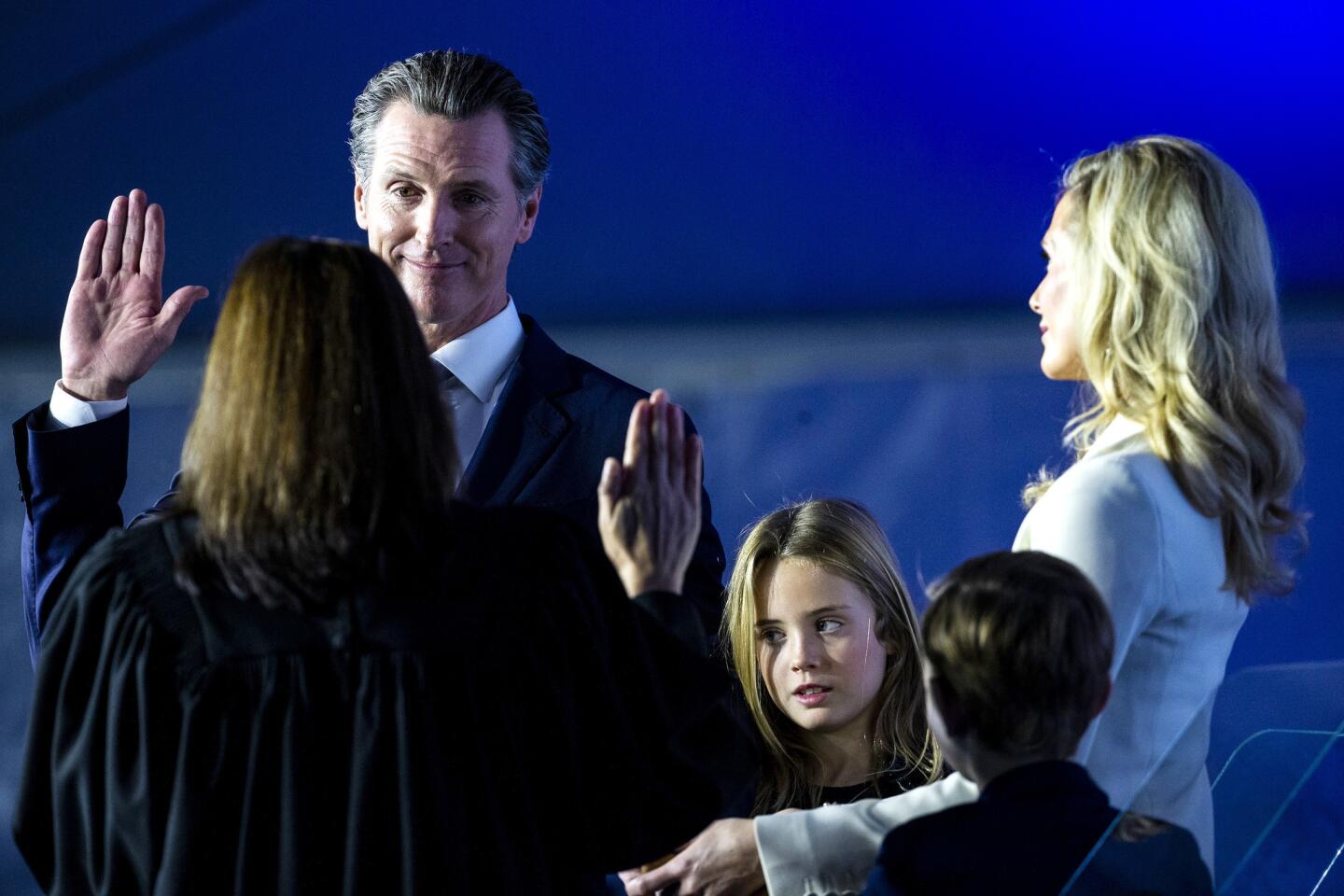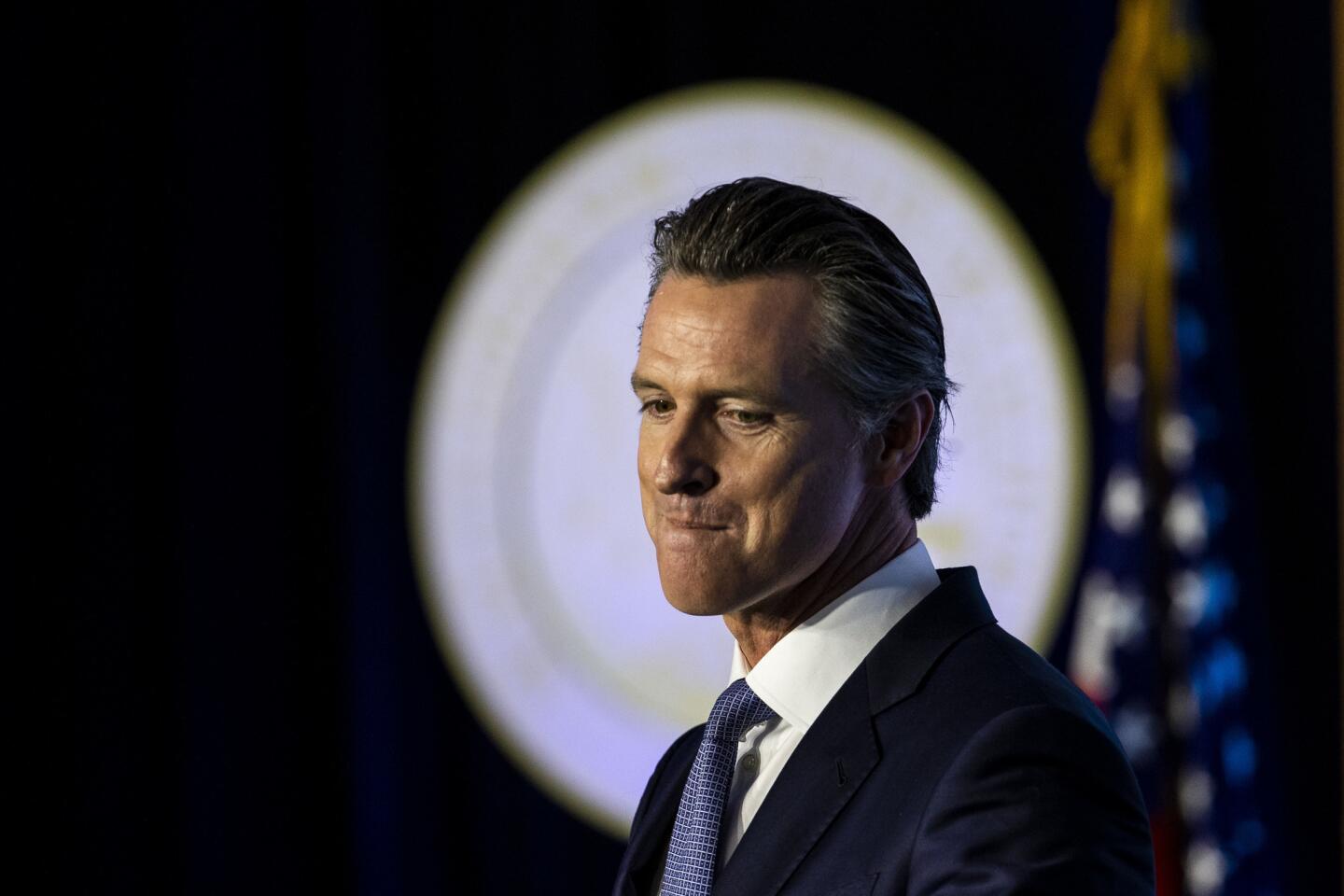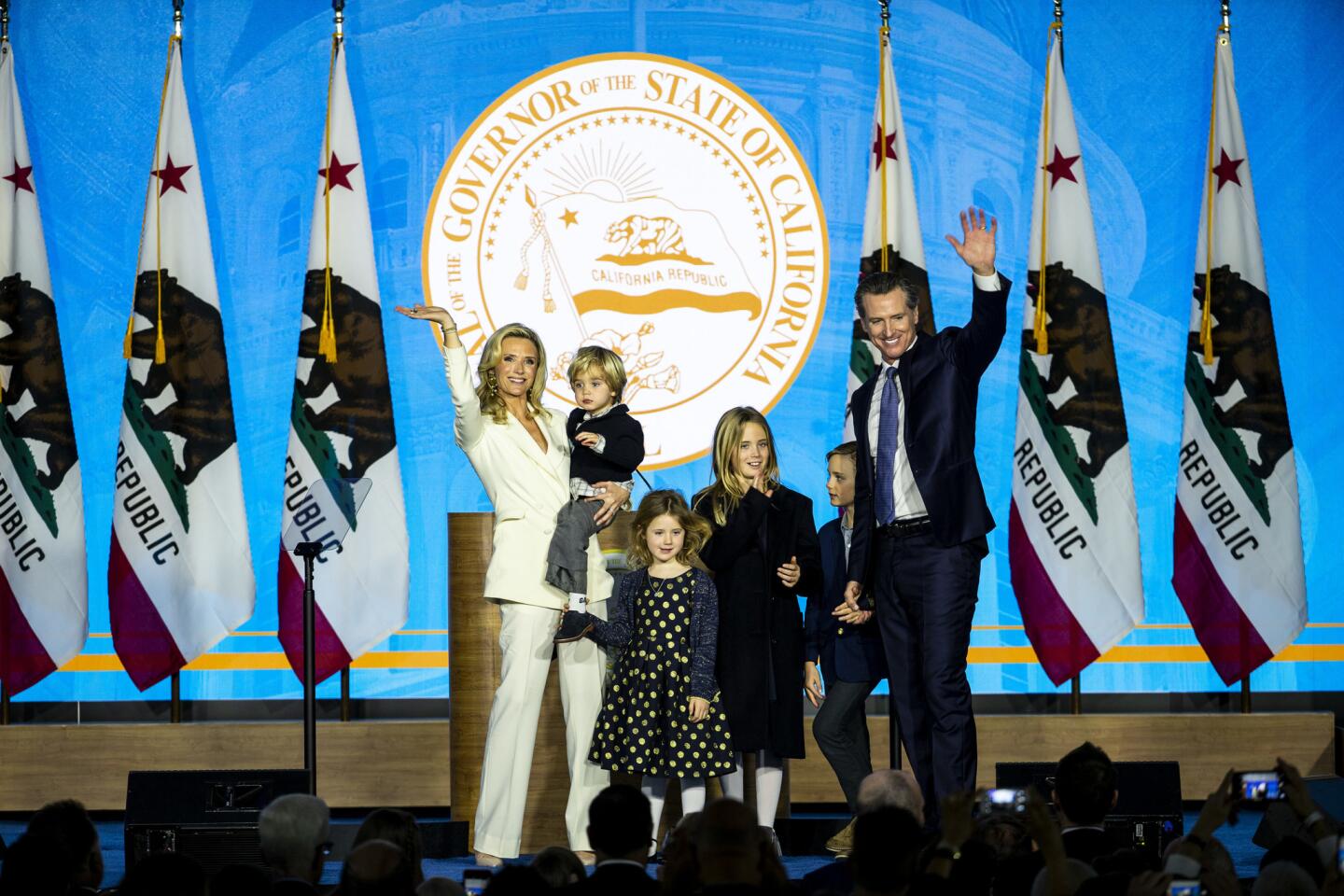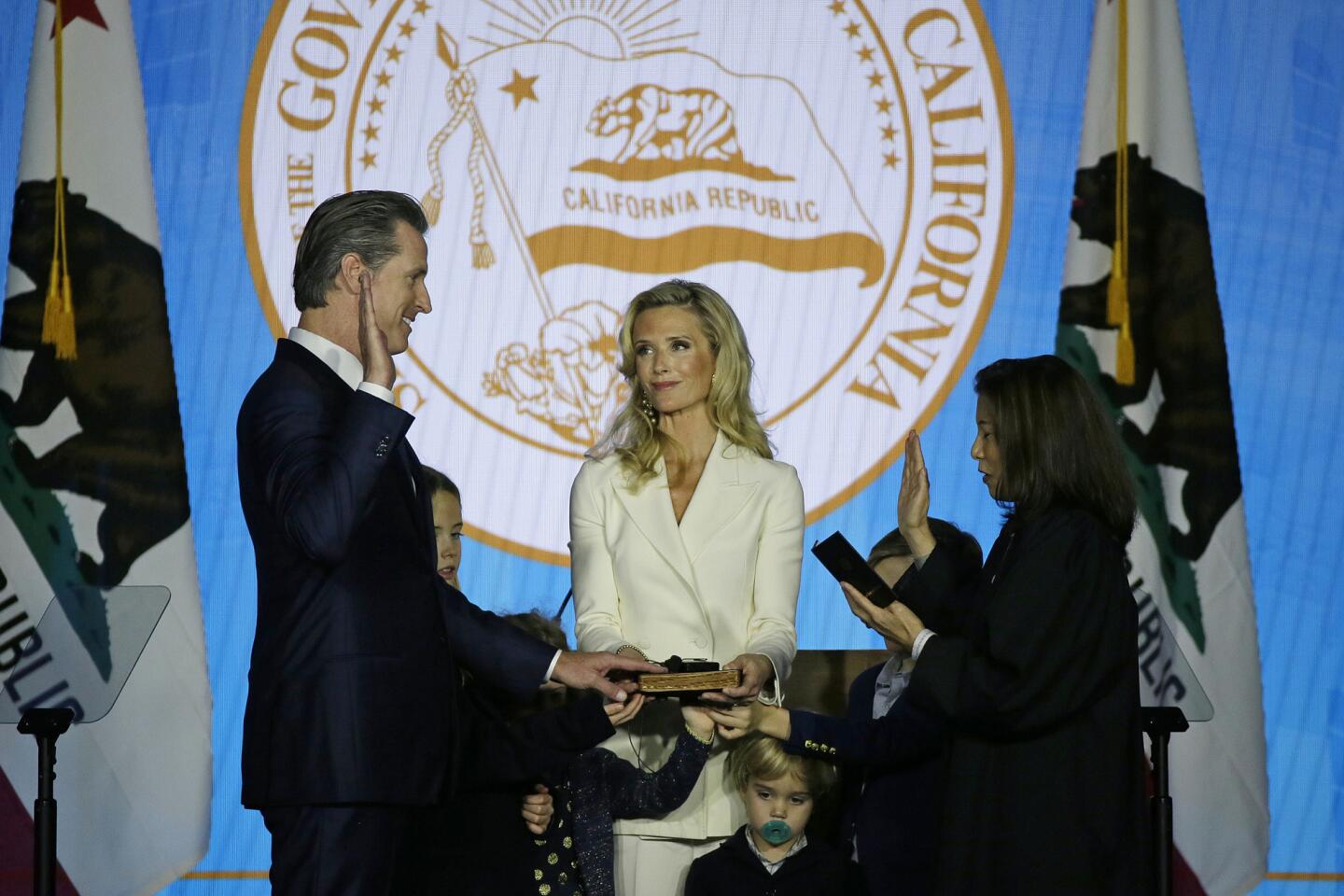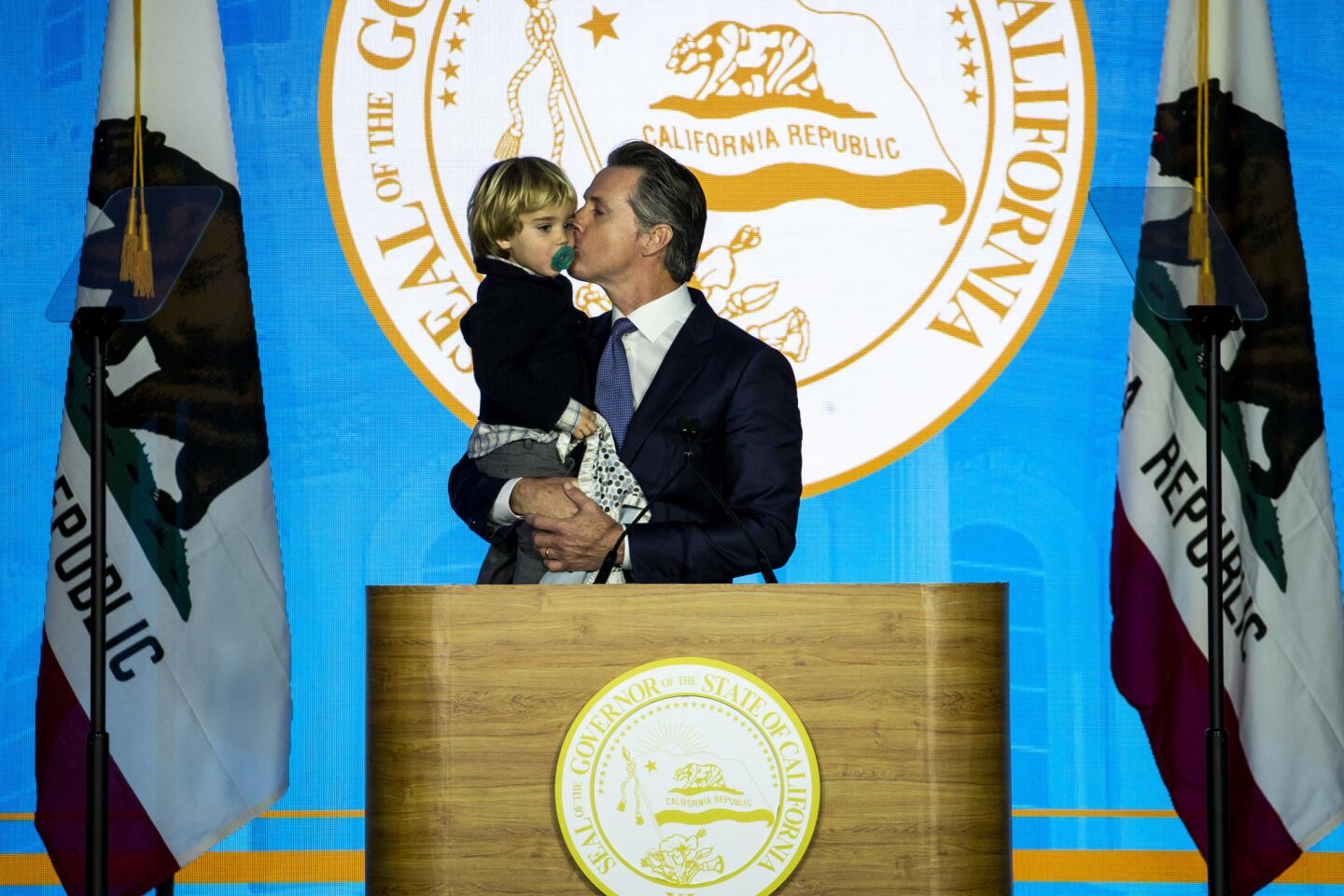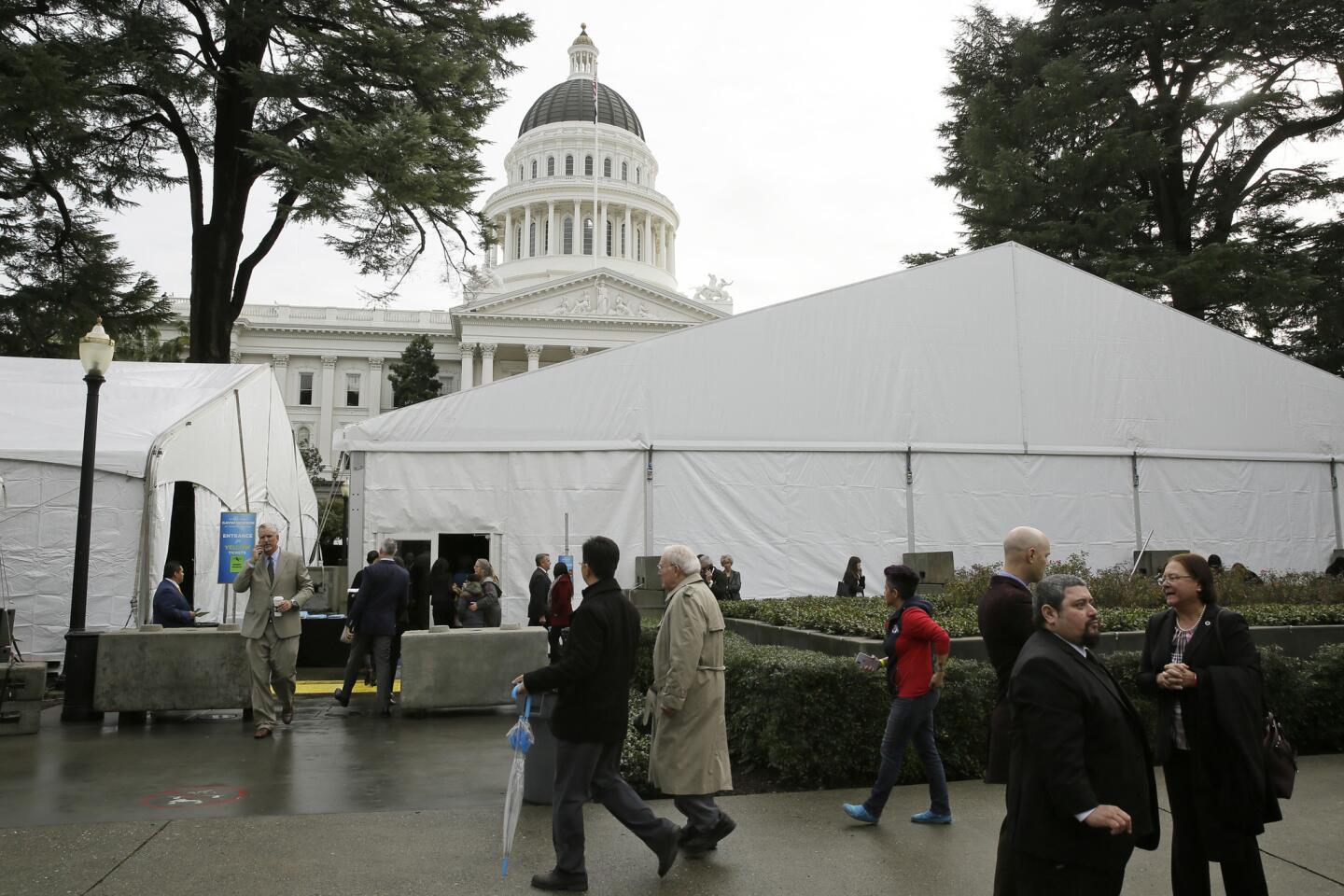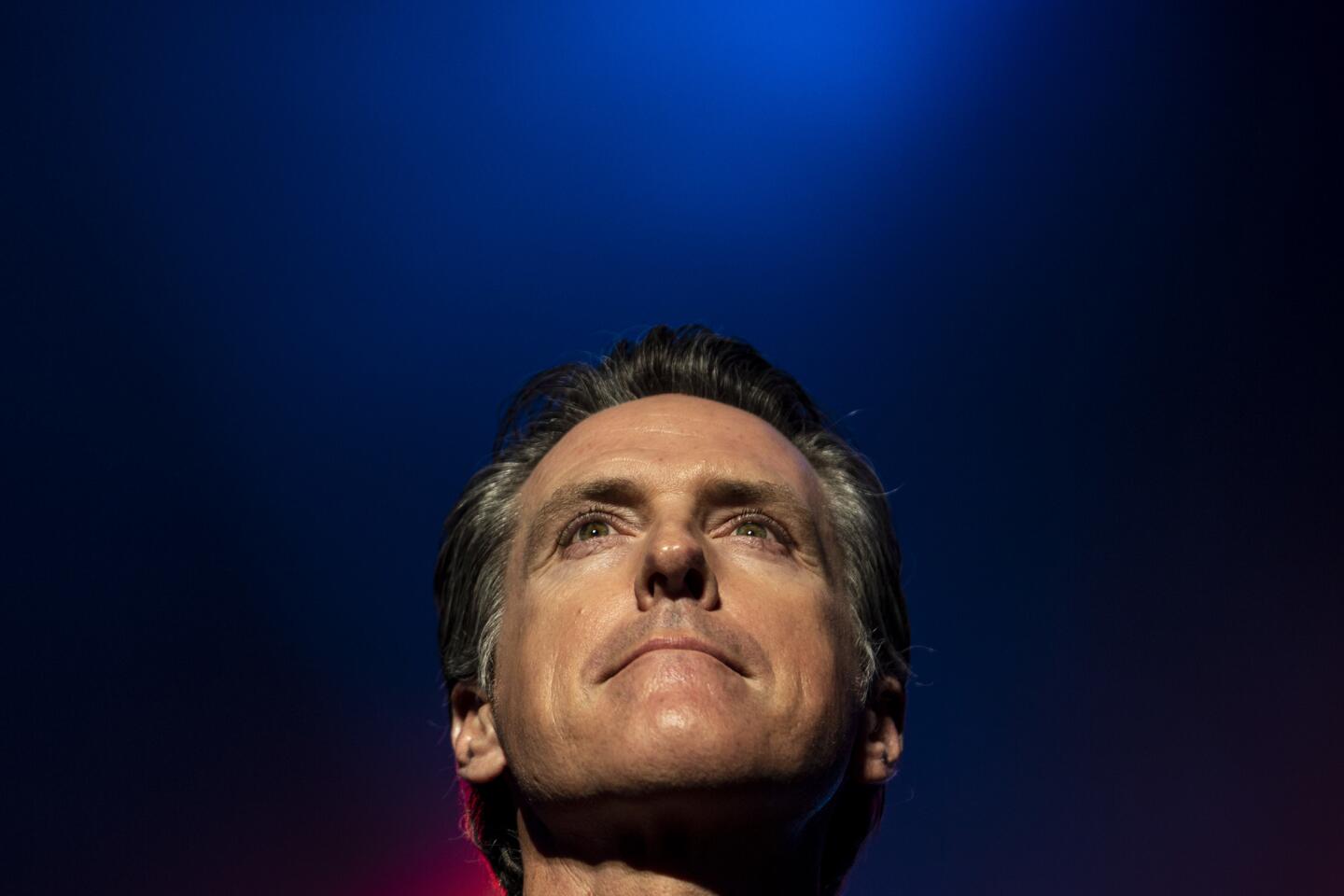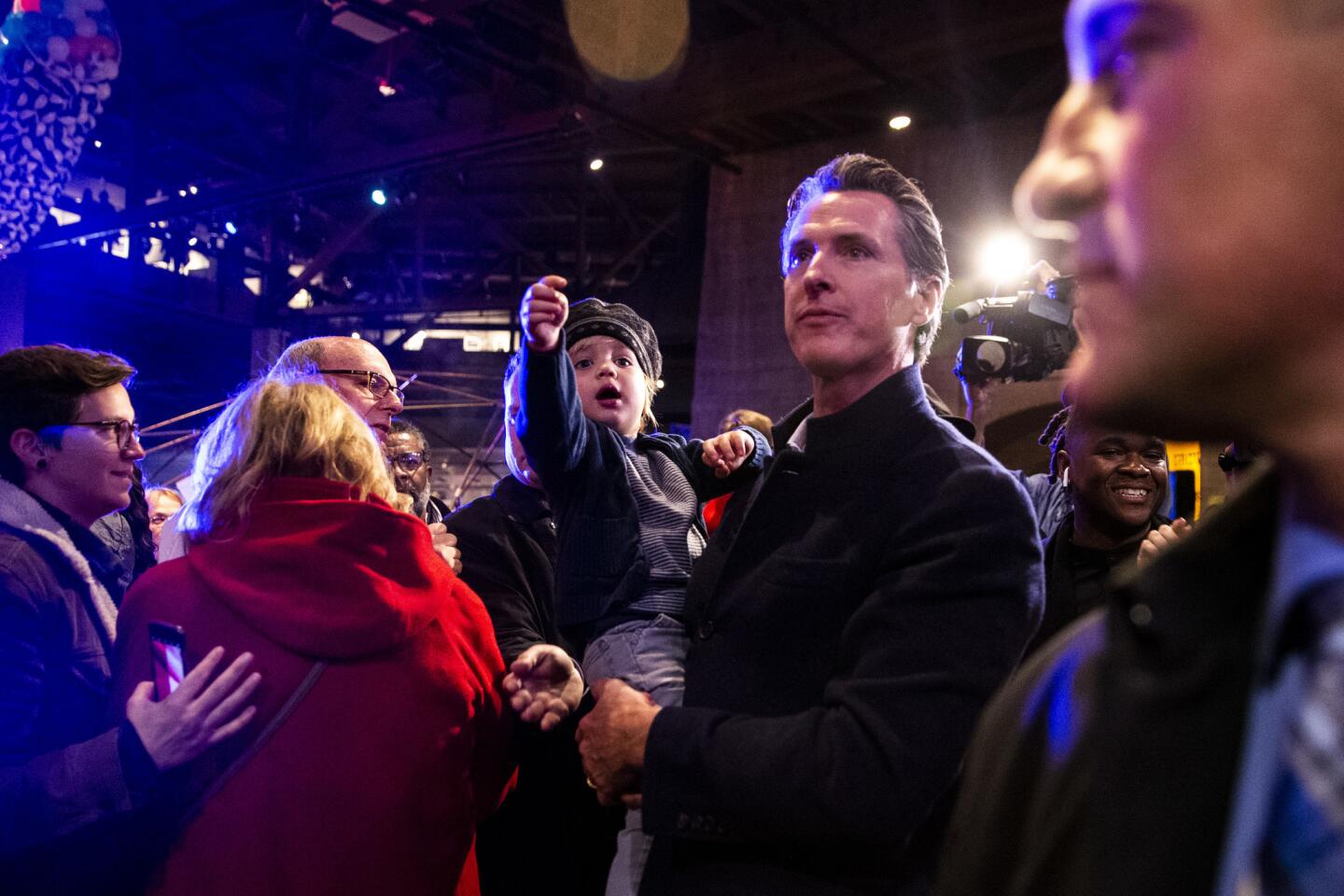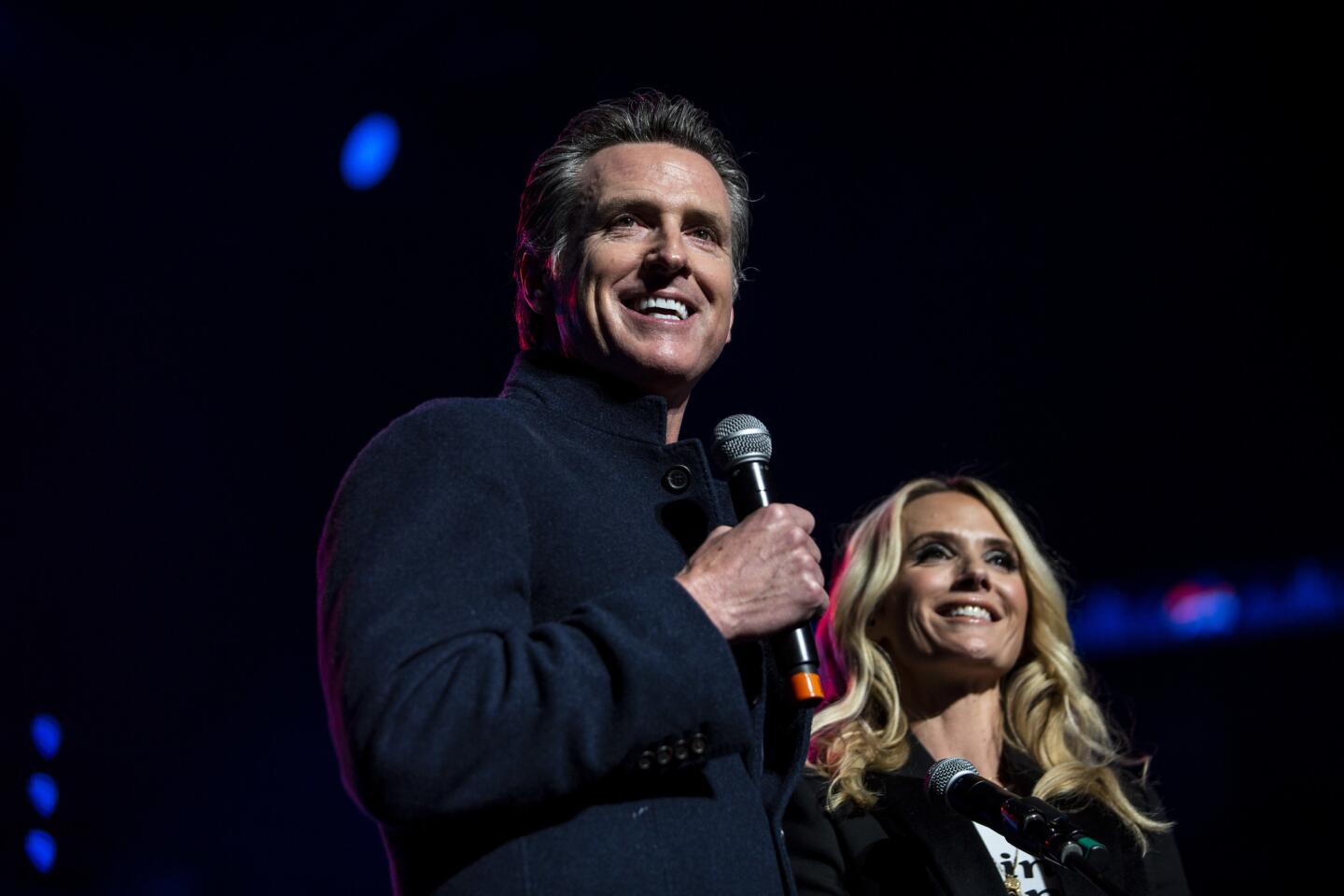Gov. Gavin Newsom proposes healthcare mandate, Medi-Cal expansion to more immigrants without legal status

Gov. Gavin Newsom proposes healthcare mandate
- Share via
Reporting from Sacramento — Gov. Gavin Newsom announced sweeping proposals to tackle the state’s healthcare needs shortly after taking office on Monday, outlining a dramatic Medi-Cal expansion that would cover young immigrant adults who are in the U.S. illegally, require that all consumers in the state carry health insurance and increase subsidies for middle-class families to help those who need it.
The Day 1 announcement was as much a rebuke to the Trump administration as it was an attempt by Newsom to make good on his campaign promise to fix a fragmented healthcare system that leaves many priced out or underinsured. The governor also signed executive orders to consolidate the state’s prescription drug purchases into a state-run program and to create a new surgeon general position to look at health disparities before they manifest, as Newsom put it.
“Every person should have access to quality, affordable healthcare,” Newsom said earlier Monday in his inaugural address. “Far-away judges and politicians may try to turn back our progress. But we will never waver in our pursuit of guaranteed healthcare for all Californians.”
Newsom campaigned on a universal healthcare platform and has said the issue would be among his top priorities. His announcement on Monday stopped short of the single-payer system demanded by activists that would cover all residents’ healthcare costs, but was characterized as the first step down that path.
The new governor sent a letter to Congress and the White House asking for changes to federal laws so that the state can have the regulatory freedom to overhaul California’s healthcare system and move toward single payer.
Pictures in the News | Tuesday Jan. 8, 2019 »
“We are very pleased that this is a governor who has put forward the vision of universal healthcare and also seeks to make tangible Year 1 steps to increase access and improve care,” said Anthony Wright, executive director of Health Access California, a consumer advocacy group. “These are key steps toward universal guaranteed coverage.”
Some of the new healthcare proposals will be included in Newsom’s state budget that will be released Thursday and vetted in the coming months by the Legislature, when the details and costs of the plan will be reviewed.
“These complex proposals require a lot of scrutiny to fully understand the consequences — both good and bad,” said Assemblyman Chad Mayes (R-Yucca Valley), the vice chairman of the Assembly Health Committee. “We agree on the goals of reduced costs, increased competition and better quality healthcare for all Californians. Government has an important role to play in holding the healthcare industry accountable; however it must be balanced and not overreach or hinder innovation.”
California would be the first state to cover immigrants without legal status who are younger than 26 through Medi-Cal, the state’s health program for people with low incomes. California already covers undocumented children until they turn 19, with Newsom’s plan increasing the age cut-off to mirror that of the Affordable Care Act, which allows young adults to stay on a parent’s health insurance plan until turning 26.
“It’s the right thing to do,” Newsom said in a Facebook Live feed announcing the proposal. “It’s the fiscally conservative thing to do. It’s the moral thing to do … When we talk about universal healthcare, it means everybody. When everybody pulls together, it means lower costs to each and every one of you.”
A legislative proposal last year pegged the cost of extending Medi-Cal to undocumented immigrants under 26 at $250 million a year. That cost would fall solely to California, despite the mix of federal and state money that typically comprises Medi-Cal funding because the Affordable Care Act prohibits the use of federal dollars for covering immigrants who are in the U.S. illegally.
Cynthia Buiza, executive director of the California Immigrant Policy Center, called the proposal a “historic commitment that takes us one step closer to upholding the vital principle that no human being should suffer or die from a treatable condition, no matter what they look like or where they were born.”
“All youth deserve reliable access to healthcare, which will allow them to focus on living happy and productive lives,” said Brianna Lierman of the Local Health Plans of California, a trade association representing not-for-profit health plans.
Newsom’s proposal would also create an individual mandate in California to thwart predicted drops in the state’s health insurance market after the federal government removed financial penalties for uninsured consumers beginning this year. The requirement that consumers have health insurance or face financial penalties propped up the Affordable Care Act, or Obamacare, and its elimination is expected to drive up premiums.
Without the individual mandate, all consumers will experience rate increases this year, said officials for Covered California, the state’s official health insurance marketplace. Covered California Executive Director Peter Lee said Newsom’s proposal would bring stability to the market and is a critical step toward reaching universal healthcare.
“At a time of ongoing uncertainty from Washington, the governor is not only embracing policies that will lower the cost of coverage for millions in the individual market, he is also offering increased help to those who are struggling with rising costs,” Lee said in a statement Monday.
Newsom’s plan to create a individual mandate for Californians could be a heavy lift, even in the Democrat-dominated state Legislature, where such a requirement could require a two-thirds vote.
Representatives for the governor’s office said requiring people to carry health insurance is central to another proposal to increase financial subsidies for middle-income families. Newsom’s budget will propose that the income cap be raised so that individuals earning up to $72,840 and families of four earning up to $150,600 could qualify for lower premiums.
“Gov. Newsom is backing up his words with action, helping make healthcare affordable and available to all Californians,” said David Aizuss, president of the California Medical Association.
While those proposals have to withstand legislative scrutiny, Newsom took his pen on Monday to an executive order that does not.
Newsom signed an order to create a surgeon general oversight position in the state and to consolidate pharmaceutical purchases in hopes of lowering drug costs for the state and consumers. Under the current system, Medi-Cal and state agencies separately negotiate prescription drug prices. Under the order, Newsom’s office said the state would become the largest single purchaser of prescription drugs.
The governor’s order would allow small businesses or individuals to join the state-run collective at the same bulk purchasing price points.
Consolidating prescription drug purchasing in the state has been proposed in the Legislature over the past several years, but has fizzled in part due to lobbying by powerful drug interests and the complexity of consolidating the current system.
“We are in essence taking all of these disparate pieces of state government that are currently negotiating for drug prices and bringing all them together in a scope and scale that is unlike any other in the United States of America,” Newsom said.
Follow @melodygutierrez on Twitter and sign up for our daily Essential Politics newsletter
More to Read
Get the L.A. Times Politics newsletter
Deeply reported insights into legislation, politics and policy from Sacramento, Washington and beyond. In your inbox twice per week.
You may occasionally receive promotional content from the Los Angeles Times.
